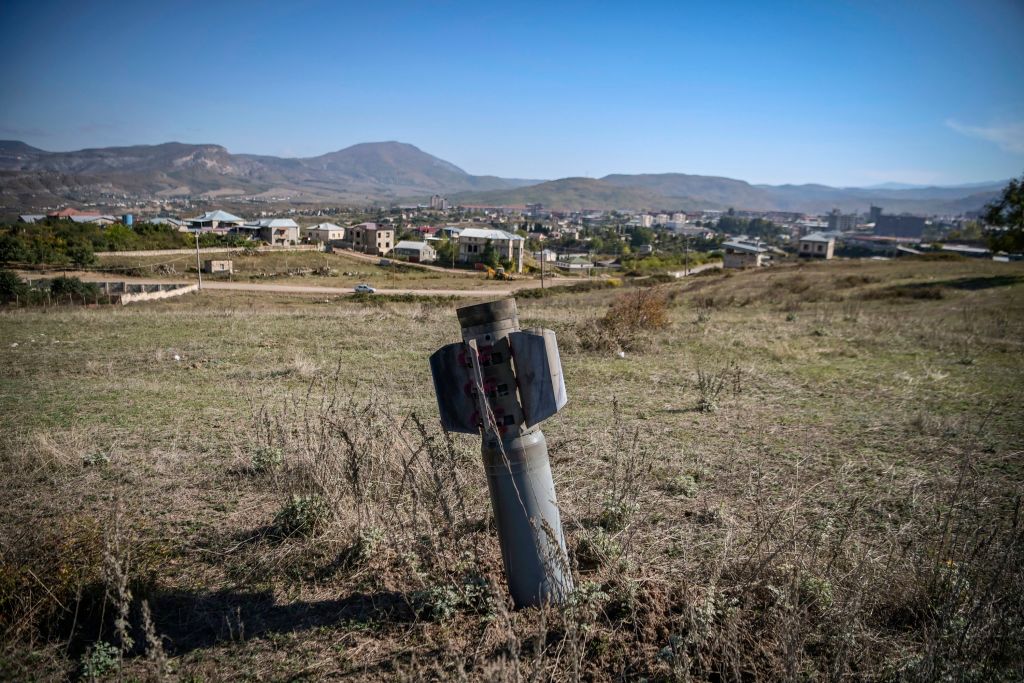On 10 November, Armenian Prime Minister Nikol Pashinyan informed Armenia that he was surrendering to end his country’s war with Azerbaijan. That prompted massive protests which put the future of the government and the surrender itself in doubt. While the official ceasefire terms announced by Russia, Armenia and Azerbaijan do not mention Turkey and make provision only for Russian peacekeepers, it seems that Turkish soldiers will take part in monitoring and implementation of the deal alongside about 2,000 Russian peacekeepers as part of a separate agreement between Ankara and Moscow.
The war between Armenia and Azerbaijan, the latter backed heavily by both Turkey and Israel, is not merely a continuation of the conflict over the disputed territory of Nagorno-Karabakh. Azerbaijan’s President Ilham Aliyev has called the conflict the ‘Second Karabakh war’. Yet this war was planned, organised, and is being overseen for the first time by Turkey, which has provided Azerbaijan with armed drones as well as a mercenary army of Syrians. These, alongside Israel’s provision of sophisticated drones and missiles to Azerbaijan, have accounted for its remarkable military success.
Turkish President Recep Tayyip Erdogan has watched and learned from Russia and Iran over the past decade how to effectively employ proxies and mercenaries to rewrite regional orders and control conflicts at little political or financial cost and, after developing a powerful drone capability, the student became the master. Combining an endless supply of Syrian mercenaries with a deadly drone armada and a small backbone of Turkish soldiers, Erdogan’s new capabilities exploded onto the regional scene in 2020 by first smashing the forces of the Assad regime and its backers in Syria and then those of warlord Khalifa Haftar and his allies in Libya.
Read the article by Oved Lobel in The Strategist.

